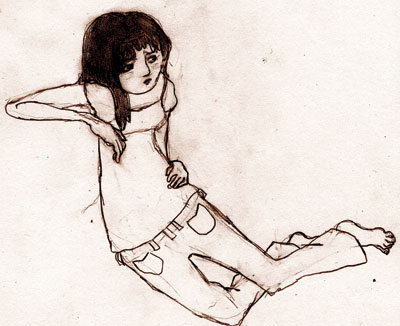All Nonfiction
- Bullying
- Books
- Academic
- Author Interviews
- Celebrity interviews
- College Articles
- College Essays
- Educator of the Year
- Heroes
- Interviews
- Memoir
- Personal Experience
- Sports
- Travel & Culture
All Opinions
- Bullying
- Current Events / Politics
- Discrimination
- Drugs / Alcohol / Smoking
- Entertainment / Celebrities
- Environment
- Love / Relationships
- Movies / Music / TV
- Pop Culture / Trends
- School / College
- Social Issues / Civics
- Spirituality / Religion
- Sports / Hobbies
All Hot Topics
- Bullying
- Community Service
- Environment
- Health
- Letters to the Editor
- Pride & Prejudice
- What Matters
- Back
Summer Guide
- Program Links
- Program Reviews
- Back
College Guide
- College Links
- College Reviews
- College Essays
- College Articles
- Back
Reflect and Blossom MAG
In my very first relationship, I was a victim of domestic violence for two years, and I had no clue.
The relationship was a cycle of lies, blame, and apologies that just kept getting worse.
“I’m sorry. It will never happen again – I promise.” I heard these words over and over again.
I believed his lies every time. As the relationship continued, his abusive behavior turned from swearing at me to leaving bruises all over my body. I was blinded by love, even though my family and friends warned me that I was holding onto poison and losing myself in the process. “He said it won’t happen again. Love is about loving someone unconditionally.” So I thought.
The day came when I finally realized I was being abused. He threw me to the concrete, spat on me, and called me a c***. The reason? I had gotten a piercing on my body and hadn’t asked for his permission first.
For two years, I took the blame for his anger and apologized for his behavior. I became a different person who was insecure and depressed. I had lost myself.
I learned the signs and cycle of abusive relationships from this experience. By seeing a therapist and reflecting, I slowly began to build my confidence back up by realizing the abusive actions and his behavior were not my fault. I became educated about domestic abuse and knew this knowledge would help me fend off another abusive partner.
Reflecting on my process of learning became just as important as the final product. In fact, Harvard University has done research on how reflection improves our ability to learn. They discovered that reflection builds one’s confidence in the ability to achieve a goal (i.e., self-efficacy), which in turn translates into higher rates of learning.
Harvard researchers concluded that in order to learn from reflecting, one must go through the following steps: “(a) articulation of a problem, (b) analysis of that problem, (c) formulation and testing of a tentative theory to explain the problem, and (d) action.” By following these steps, one will be able to take in all the learning possibilities from their experience. It will allow one to re-frame challenges and look at them in different perspectives. A person can gain a greater perspective on past decisions by looking back on the experience. When I was in the abusive relationship, I was blinded. Now four years later, I can pinpoint the signs of abuse.
Reflecting with other people also allows for different opinions and advice. Individuals can think about what they would do in another’s situation and apply some of the same conclusions to their own. For example, when meeting with my therapist, we compared my problem to how my relationship with my parents makes me feel – safe, secure, and loved. She told me that I was supposed to feel this type of affection in a romantic relationship as well, rather than fear and disappointment. We also looked back at when I was confident; she told me that the relationship made me lose the person I was. I was not able to recognize this until I looked back and reflected. By reflecting, we can learn where we went wrong and what we can do better next time to prevent the situation from arising again.
Not only can the reflection process help a person grow as an individual, but also as an advocate for others. After reflecting, that person is more knowledgeable about the subject as a whole. After seeking out alternative approaches and contrasting the good and bad, they now have a strong, educated opinion on the subject matter and know what works best for them. This can motivate them to create positive future goals.
For example, I want to help other girls get through their tragic experiences. I am now educated about domestic violence enough to be able to achieve my goal of sharing my story and giving advice to others in abusive relationships. They, in turn, will be able to help others grow and heal. Ultimately, say researchers, the goal is for us to learn from our past and “link a current experience to previous learning.” Reflecting on an experience is a great way to discover more about oneself and pick up valuable life lessons along the way.

Similar Articles
JOIN THE DISCUSSION
This article has 0 comments.
